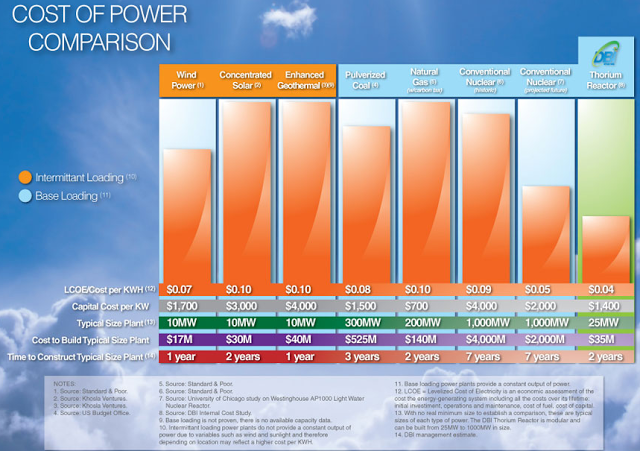The TPC (Thorium Power Canada) Thorium Reactor is a one-of-a-kind technology whose modular design can achieve any output desired at significantly reduced capital and carrying costs. The cost to build a reactor is estimated at $2.0 million per MW and can be built in 18-24 months versus conventional reactors at 5-7 years. Through a partnership with DBI, the company’s thorium reactor design provides a nuclear alternative to fossil fuel consumption, taking advantage of abundant and widely available thorium deposits. The TPC Thorium Reactor has been in research and development since 1970.
Nextbigfuture has summarized the patent.
Chilean 10 MW Thorium Desalination Plant
They are planning a 10 MW thorium reactor located in Copiapó, Chile consists of a core and reactor manufactured by DBI Operating Company in California. The balance of plant, including all buildings and required infrastructure will be constructed on site.
It is estimated that the TPC Thorium Reactor will provide enough power to produce 20 million litres per day at the desalination plant. This is the equivalent amount that would power 3500 homes.
An application for condition approval to build a demonstration reactor has been submitted to the Chilean Government.
Indonesian 25 MW Thorium Power Project
Thorium Power Canada is presently preparing a proposal for the development of a 25 MW thorium reactor in Indonesia. This demonstration power project will provide electrical power to the country’s power grid.
Indonesia could install a reactor on the island of Kalimantan in as soon as two years, Kerr said. The reactor would either connect to the grid in the rapidly expanding country, or power a water desalination plant.
Thorium burns longer and at higher temperatures to achieve many efficiencies over other conventional fuels including more efficient fuel utilization, the elimination of packaging waste, and significant reduction of long-lived radioactive isotopes. One pound of Thorium will produce the same energy output as 300 lbs of Uranium and 3.5 million pounds of coal, without the environmental effects of coal in the atmosphere and the risks associated with Uranium generators and waste products. There is 90% less waste with a Thorium reactor with the little waste produced requiring storage for an average of 200 years.
The DBI Thorium Breeding/Breeder Reactor represents an evolutionary advance in nuclear reactor design. Under development for four decades, the reactor consists of a small number of robust, mechanically-elegant and low pressure core systems.
Components have been built and a reactor mockup has been built
Three applications for the Thorium Reactor.
Booster Steam for Existing Power Plants – DBI reactors offer 75 MW thermal and 100MW thermal modules that provide less expensive steam heat for the conversion or upgrade of existing fossil fuel-using power plants while dramatically reducing carbon emissions. The company’s products and services will be offered through licenses for modular thorium nuclear powered steam boosters and will be installed in existing power plant sites and operated under the existing Environmental Impact Report of the original power plant.
Production of Alternating Current (AC) for use on the World’s Electricity Grids – DBI’s aim is to offer less expensive alternating current to the global wholesale electricity generation market. The company’s products will be offered through licenses for modular thorium nuclear powered steam boosters with steam turbine AC generators and associated equipment (BusBar, etc) to produce alternating current suitable for use on the world’s alternating current electric power grids.
Steam and Direct Current (DC) for High Temperature Electrolysis – The DBI reactor can supply less expensive steam heat and direct current electricity for the generation of hydrogen (via high temperature electrolysis) for use in existing agriculture and emerging synthetic fuel applications. The company’s products will be offered through licenses for modular thorium nuclear powered steam boosters with steam turbine DC generators for hydrogen production.
If you liked this article, please give it a quick review on ycombinator or StumbleUpon. Thanks

Brian Wang is a Futurist Thought Leader and a popular Science blogger with 1 million readers per month. His blog Nextbigfuture.com is ranked #1 Science News Blog. It covers many disruptive technology and trends including Space, Robotics, Artificial Intelligence, Medicine, Anti-aging Biotechnology, and Nanotechnology.
Known for identifying cutting edge technologies, he is currently a Co-Founder of a startup and fundraiser for high potential early-stage companies. He is the Head of Research for Allocations for deep technology investments and an Angel Investor at Space Angels.
A frequent speaker at corporations, he has been a TEDx speaker, a Singularity University speaker and guest at numerous interviews for radio and podcasts. He is open to public speaking and advising engagements.




